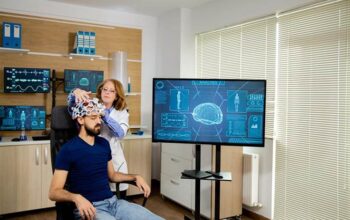Regular health screenings play a crucial role in maintaining good health and preventing the onset or progression of various diseases. Health screenings are preventive measures that involve tests, examinations, and assessments to detect potential health issues before they become symptomatic.
By identifying risk factors and early signs of diseases, individuals can take proactive steps to manage their health effectively. In this article, we will explore the different types of health screenings available and how they can be tailored to meet individual needs.
Introduction to Health Screenings
Health screenings are proactive measures that aim to detect health conditions or risk factors in individuals who may not yet have any symptoms. They are typically conducted by healthcare professionals at health screening clinics or healthcare facilities. Health screenings encompass a range of tests and assessments that vary depending on age, gender, medical history, and lifestyle factors.
General Health Screenings
General health screenings focus on assessing overall health and identifying common health conditions. These screenings often include measurements such as blood pressure, body mass index (BMI), cholesterol levels, and blood glucose levels.
General health screenings provide a broad overview of an individual’s health and can help identify risk factors for conditions like cardiovascular disease, diabetes, and obesity.
Cancer Screenings
Cancer screenings are targeted at detecting early signs of specific types of cancer. Examples of common cancer screenings include mammograms for breast cancer, pap smears for cervical cancer, and colonoscopies for colorectal cancer.
These screenings are crucial in identifying cancer at early stages when treatment is often more effective. The frequency and age at which individuals should undergo cancer screenings may vary based on factors such as family history, personal risk factors, and guidelines from healthcare organizations.
Age-Specific Screenings
Certain health screenings are recommended at specific ages to detect age-related health conditions. For example, bone density scans are recommended for women over the age of 65 to detect osteoporosis, while prostate-specific antigen (PSA) tests are commonly performed in men over the age of 50 to screen for prostate cancer.
These age-specific screenings help identify conditions that are more prevalent in certain age groups and allow for early intervention and treatment.
Occupational Health Screenings
Occupational health screenings are conducted to assess the health and fitness of individuals in specific work environments. These screenings are often required for certain professions or industries to ensure the safety and well-being of employees.
Examples of occupational health screenings include hearing tests for workers in noisy environments, lung function tests for individuals exposed to respiratory hazards, and vision tests for those working with visual requirements.
Genetic and Family History-Based Screenings
Genetic screenings and screenings based on family history assess an individual’s risk for specific genetic conditions or diseases with a genetic component. These screenings involve analyzing an individual’s genetic makeup or assessing their family history to identify potential inherited risks.
Genetic screenings can help individuals make informed decisions about their health and take appropriate preventive measures.
Tailoring Health Screenings to Your Needs
It is important to recognize that health screenings should be tailored to individual needs. Factors such as age, gender, family history, lifestyle choices, and personal risk factors should be taken into account when determining the appropriate screenings for an individual.
Consulting with a healthcare professional or a health screening clinic can help determine which screenings are most relevant based on an individual’s unique circumstances.
Benefits and Limitations of Health Screenings
Health screenings offer numerous benefits, including early detection of diseases, identification of risk factors, and the opportunity for early intervention and treatment. However, it is important to understand that screenings have limitations.
False-positive and false-negative results can occur, leading to unnecessary anxiety or potential missed diagnoses. It is crucial to discuss screening results with healthcare professionals to fully understand their implications and determine the next steps.
Conclusion
Understanding the different types of health screenings and tailoring them to individual needs is crucial for maintaining optimal health. General health screenings, cancer screenings, age-specific screenings, occupational screenings, and genetic/family history-based screenings are all valuable tools in preventive healthcare.
By proactively participating in health screenings and working closely with healthcare professionals, individuals can detect potential health issues early, make informed decisions about their health, and take appropriate preventive measures. Regular health screenings are an investment in one’s well-being, offering the opportunity for early intervention and improved health outcomes.




